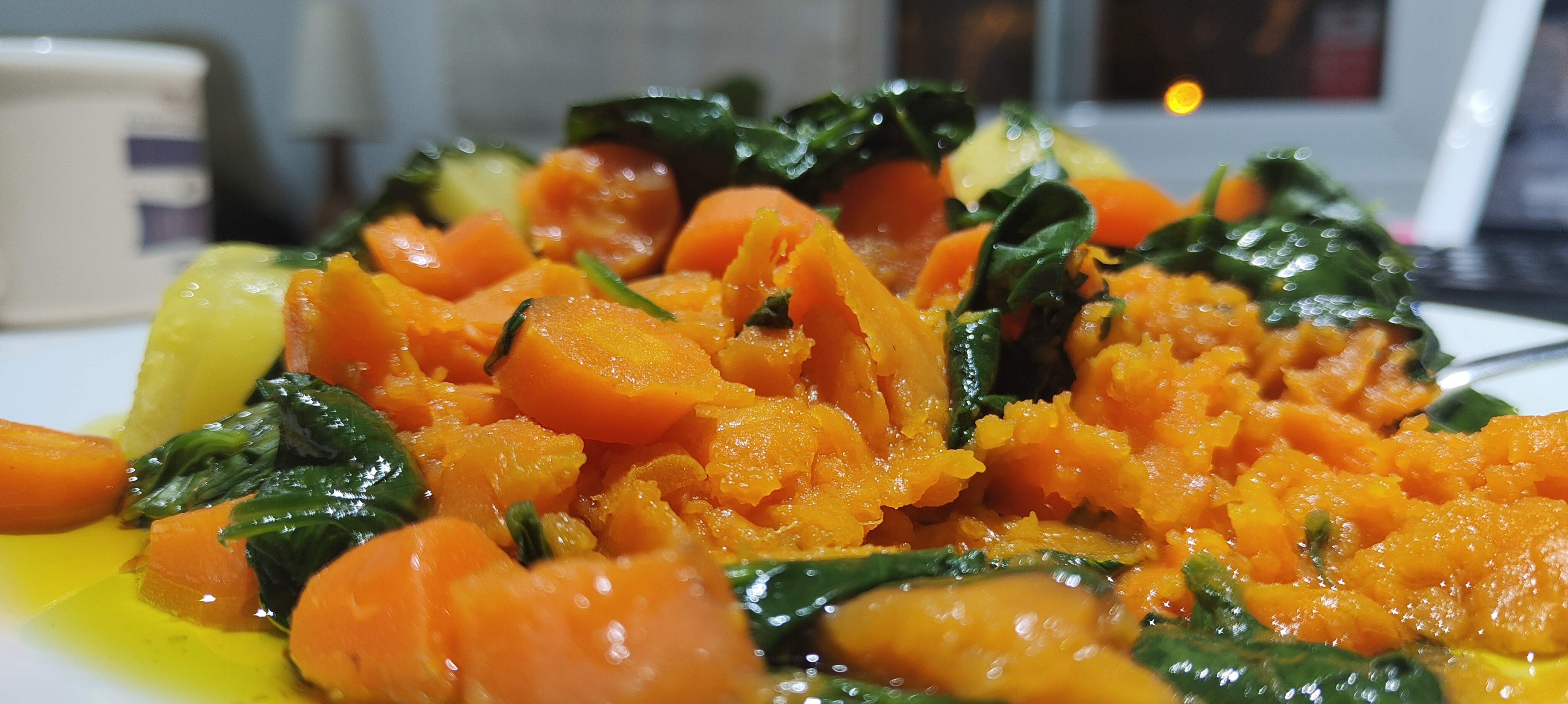Everything to know about the Health Benefits of Beets
Some benefits of eating beets may include lower blood pressure and better athletic performance, among others. Eating beets raw or juicing and roasting them may be more beneficial than boiling them.
Beetroots, commonly known as beets, are a vibrant and versatile type of vegetable. They’re known for their earthy flavor and aroma. Many people call them a superfood because of their rich nutritional profile.
In addition to bringing a pop of color to your plate, beets are highly nutritious and packed with essential vitamins, minerals, and plant compounds, many of which have medicinal properties.
What’s more, they’re delicious and easy to add to your diet in dishes like balsamic roasted beets, hummus, fries, and salads, among many others.
Here are 9 evidence-based benefits of beets, plus some tasty ways to increase your intake.
Share on Pinterest
Beets boast an impressive nutritional profile.
They’re low in calories yet high in valuable vitamins and minerals. In fact, they contain a bit of almost all of the vitamins and minerals your body needs (1Trusted Source).
Here’s an overview of the nutrients found in a 3.5-ounce (100-gram) serving of boiled beetroot (1Trusted Source):
Calories: 44
Protein: 1.7 grams
Fat: 0.2 grams
Carbs: 10 grams
Fiber: 2 grams
Folate: 20% of the Daily Value (DV)
Manganese: 14% of the DV
Copper: 8% of the DV
Potassium: 7% of the DV
Magnesium: 6% of the DV
Vitamin C: 4% of the DV
Vitamin B6: 4% of the DV
Iron: 4% of the DV
Beets are particularly rich in folate, a vitamin that plays a key role in growth, development, and heart health (2Trusted Source).
They also contain a good amount of manganese, which is involved in bone formation, nutrient metabolism, brain function, and more (3Trusted Source).
Plus, they’re high in copper, an important mineral required for energy production and the synthesis of certain neurotransmitters (4Trusted Source).
Summary
Beets are loaded with vitamins and minerals yet low in calories and fat. They’re also a good source of several key nutrients, including folate, manganese, and copper.
Beets have been well studied for their ability to decrease elevated blood pressure levels, which are a major risk factor for heart disease (5Trusted Source).
In fact, some studies show that beetroot juice could significantly lower levels of both systolic and diastolic blood pressure (6Trusted Source, 7Trusted Source).
The effect appears to be greater for systolic blood pressure, which is the pressure when your heart contracts, rather than diastolic blood pressure, which is the pressure when your heart is relaxed. Also, raw beets may exert a stronger effect than cooked ones (7Trusted Source, 8Trusted Source).
These blood-pressure-lowering effects are likely due to the high concentration of nitrates in this root vegetable. In your body, dietary nitrates are converted into nitric oxide, a molecule that dilates blood vessels and causes blood pressure levels to drop (9Trusted Source).
Beets are also a great source of folate. Although research has turned up mixed results, several studies suggest that increasing your intake of folate could significantly lower blood pressure levels (10Trusted Source).
However, keep in mind that beets’ effect on blood pressure is only temporary. As such, you need to consume them regularly to experience heart-health benefits over the long term (11Trusted Source).
Summary
Beets contain a high concentration of nitrates, which can help lower your blood pressure levels. This may lead to a reduced risk of heart disease and stroke.
Several studies suggest that dietary nitrates like those found in beets may enhance athletic performance.
Nitrates appear to affect physical performance by improving the efficiency of mitochondria, which are responsible for producing energy in your cells (12Trusted Source).
According to one review, beetroot juice could enhance endurance by increasing how long it takes to become exhausted, boosting cardiorespiratory performance, and improving efficiency for athletes (13Trusted Source).
Promisingly, beet juice has also been shown to improve cycling performance and increase oxygen use by up to 20% (14Trusted Source, 15Trusted Source).
It’s important to note that blood nitrate levels peak within 2–3 hours of consuming beets or their juice. Therefore, it’s best to consume them a couple of hours before training or competing to maximize their potential benefits (16Trusted Source).
Summary
Eating beets may enhance athletic performance by improving oxygen use and endurance. To maximize their effects, consume them 2–3 hours prior to training or competing.
Beets contain pigments called betalains, which possess a number of anti-inflammatory properties (8Trusted Source, 17Trusted Source, 18Trusted Source).
This could benefit several aspects of health, as chronic inflammation has been associated with conditions like obesity, heart disease, liver disease, and cancer (19Trusted Source).
One study in 24 people with high blood pressure found that consuming 8.5 ounces (250 mL) of beet juice for 2 weeks significantly reduced several markers of inflammation, including C-reactive protein (CRP) and tumor necrosis factor-alpha (TNF-a) (8Trusted Source).
Plus, an older 2014 study in people with osteoarthritis — a condition that causes inflammation in the joints — showed that betalain capsules made with beetroot extract reduced pain and discomfort (20).
Beetroot juice and extract have also been shown to reduce kidney inflammation in rats injected with toxic, injury-causing chemicals (17Trusted Source).
Still, more studies in humans are needed to determine whether enjoying beets in normal amounts as part of a healthy diet may provide the same anti-inflammatory benefits.
Summary
Beets may have a number of anti-inflammatory effects, although further research in humans is needed.
One cup of beetroot contains 3.4 grams of fiber, making beets a good fiber source (1Trusted Source).
Fiber bypasses digestion and travels to the colon, where it feeds friendly gut bacteria and adds bulk to stools (21Trusted Source).
This can promote digestive health, keep you regular, and prevent digestive conditions like constipation, inflammatory bowel disease (IBS), and diverticulitis (22Trusted Source, 23Trusted Source).
Moreover, fiber has been linked to a reduced risk of chronic diseases, including colon cancer, heart disease, and type 2 diabetes (23Trusted Source, 24Trusted Source, 25Trusted Source).
Summary
Beets are a good source of fiber, which benefits your digestive health and reduces the risk of several chronic health conditions.
»MORE:Living with diabetes? Explore our top resources.
Mental and cognitive functions naturally decline with age, which can increase the risk of neurodegenerative disorders like dementia.
The nitrates in beets may improve brain function by promoting the dilation of blood vessels and thus increasing blood flow to the brain (26Trusted Source).
Particularly, beets have been shown to improve blood flow to the frontal lobe of the brain, an area associated with higher level thinking like decision making and working memory (27Trusted Source).
Furthermore, an older study in people with type 2 diabetes found that reaction time during a cognitive function test was 4% faster in those who consumed 8.5 ounces (250 mL) of beetroot juice daily for 2 weeks, compared with a control group (28Trusted Source).
However, more research is needed to determine whether beets could be used to improve brain function and reduce the risk of dementia among the general population.
Summary
Beets contain nitrates, which may increase blood flow to the brain and improve cognitive function. However, more research in this area is needed.
Beetroot contains several compounds with cancer-fighting properties, including betaine, ferulic acid, rutin, kaempferol, and caffeic acid (29Trusted Source).
Although more research is needed, test-tube studies have shown that beetroot extract can slow the division and growth of cancer cells (30Trusted SourceTrusted Source, 31Trusted Source, 32Trusted Source).
Several other studies have found that having higher blood levels of betaine may be associated with a lower risk of developing cancer (33Trusted Source, 34Trusted Source).
However, it’s important to note that most studies on the topic have used isolated compounds rather than beetroot. Therefore, further research on beetroot consumption as part of a well-rounded diet and cancer risk is needed.
Summary
Some studies show that certain compounds found in beets could have cancer-fighting properties. Still, further research is needed to better understand this potential connection.
Beets have several nutritional properties that could make them a great addition to a balanced diet.
First, they’re low in fat and calories but high in water, which can help balance your energy intake. Increasing your intake of low calorie foods like this root vegetable has also been associated with weight loss (35Trusted Source).
Furthermore, despite their low calorie content, they contain moderate amounts of protein and fiber. Both of these nutrients can make it easier to achieve and maintain a moderate weight (36Trusted Source, 37Trusted Source).
The fiber in beets may also support digestive health, decrease appetite, and promote feelings of fullness, thereby reducing your overall calorie intake (38Trusted Source).
Additionally, by including them in smoothies or other recipes, you can easily increase your intake of fruits and vegetables to improve the quality of your diet (39Trusted Source).
Summary
Beets have are high in water, moderate in fiber and protein, and low in calories. All of these properties can balance your energy intake and improve your diet quality.
Beets are not only nutritious but also incredibly delicious and easy to incorporate into your diet.
You can juice, roast, steam, or pickle them. For a convenient option, you can purchase them precooked and canned. You can even enjoy them raw, either sliced thinly or grated.
Choose beets that feel heavy for their size with fresh, unwilted green leafy tops still attached, if possible.
Because dietary nitrates are water-soluble, it’s best to avoid boiling beets if you’d like to maximize their nitrate content.
Are beets good for people with diabetes?
Here are some delicious and interesting ways to add more beets to your diet:
Salad. Grated beets make a flavorful and colorful addition to coleslaw or other salads. Try this recipe for Amazing Dressed Beets or a Beetroot, Orange, and Carrot Salad.
Dip. Beets blended with Greek yogurt and fresh garlic make a delicious, healthy, and colorful dip. Have a go at this Beetroot and Honey Lemon Houmous.
Juice. Fresh beetroot juice is typically better than store-bought versions, which can be high in added sugar and contain only a small amount of beets. Try this beetroot juice recipe, which uses carrot, apple, ginger, celery, and lemon for flavor
Soup: Borscht is a popular soup in Eastern Europe and Northeast Asia. Try this classic recipe or this beetroot and tomato variation.
Leaves. You can cook and enjoy fresh beet leaves similarly to how you’d use spinach. Get some ideas for cooking beet greens here.
Roasted. Wedge beetroots and toss them with a little olive oil, salt, pepper, and herbs or spices of your choice. Then, roast them in a 400°F (205°C) oven for 15–20 minutes until they’re tender. Or try these Balsamic Roasted Beets.
Summary
Beetroot is a delicious and versatile vegetable that’s easy to add to your diet. If possible, choose beets that feel heavy for their size with green tops still attached.
Can you eat beets everyday?
It’s always best to follow a varied diet.
Eating a small amount of beetroot every day is unlikely to do any harm, but a high intake could lead to low blood pressure, red or black urine and feces, and digestive problems for anyone with a sensitivity to the nutrients. A high daily beet consumption may also mean you are not getting nutrients from other foods, however, so try to vary your diet.
Always speak with a doctor before making significant dietary changes.
Are beets a superfood?
Some people call beets a superfood because they are rich in essential nutrients.
Are beets anti-inflammatory?
Beets contain betalains, a natural coloring agent with antioxidant and anti-inflammatory properties. Some research suggests belatains may help reduce both symptoms and biological markers in the body related to inflammation (8Trusted Source, 17Trusted Source, 20).
Can beets boost your sexual health?
Beets contain nitrates and there is some evidence they may improve the body’s nitric oxide production (40Trusted Source).
The body needs nitric oxide to open the blood vessels that are necessary for getting and maintaining an erection. This may make them suitable for people with erectile dysfunction, although there is no scientific evidence to confirm this.
Can beets help with sexual function?
Beets are highly nutritious and loaded with health-promoting properties.
They can support the health of your brain, heart, and digestive system, are a great addition to a balanced diet, boost athletic performance, help alleviate inflammation, and possibly slow the growth of cancer cells.
Best of all, beets are delicious and easy to include in your diet. For example, they’re a great addition to salads, side dishes, smoothies, dips, and juices.
https://www.healthline.com/nutrition/benefits-of-beets#nutrients-and-calories
Some benefits of eating beets may include lower blood pressure and better athletic performance, among others. Eating beets raw or juicing and roasting them may be more beneficial than boiling them.
Beetroots, commonly known as beets, are a vibrant and versatile type of vegetable. They’re known for their earthy flavor and aroma. Many people call them a superfood because of their rich nutritional profile.
In addition to bringing a pop of color to your plate, beets are highly nutritious and packed with essential vitamins, minerals, and plant compounds, many of which have medicinal properties.
What’s more, they’re delicious and easy to add to your diet in dishes like balsamic roasted beets, hummus, fries, and salads, among many others.
Here are 9 evidence-based benefits of beets, plus some tasty ways to increase your intake.
Share on Pinterest
Beets boast an impressive nutritional profile.
They’re low in calories yet high in valuable vitamins and minerals. In fact, they contain a bit of almost all of the vitamins and minerals your body needs (1Trusted Source).
Here’s an overview of the nutrients found in a 3.5-ounce (100-gram) serving of boiled beetroot (1Trusted Source):
Calories: 44
Protein: 1.7 grams
Fat: 0.2 grams
Carbs: 10 grams
Fiber: 2 grams
Folate: 20% of the Daily Value (DV)
Manganese: 14% of the DV
Copper: 8% of the DV
Potassium: 7% of the DV
Magnesium: 6% of the DV
Vitamin C: 4% of the DV
Vitamin B6: 4% of the DV
Iron: 4% of the DV
Beets are particularly rich in folate, a vitamin that plays a key role in growth, development, and heart health (2Trusted Source).
They also contain a good amount of manganese, which is involved in bone formation, nutrient metabolism, brain function, and more (3Trusted Source).
Plus, they’re high in copper, an important mineral required for energy production and the synthesis of certain neurotransmitters (4Trusted Source).
Summary
Beets are loaded with vitamins and minerals yet low in calories and fat. They’re also a good source of several key nutrients, including folate, manganese, and copper.
Beets have been well studied for their ability to decrease elevated blood pressure levels, which are a major risk factor for heart disease (5Trusted Source).
In fact, some studies show that beetroot juice could significantly lower levels of both systolic and diastolic blood pressure (6Trusted Source, 7Trusted Source).
The effect appears to be greater for systolic blood pressure, which is the pressure when your heart contracts, rather than diastolic blood pressure, which is the pressure when your heart is relaxed. Also, raw beets may exert a stronger effect than cooked ones (7Trusted Source, 8Trusted Source).
These blood-pressure-lowering effects are likely due to the high concentration of nitrates in this root vegetable. In your body, dietary nitrates are converted into nitric oxide, a molecule that dilates blood vessels and causes blood pressure levels to drop (9Trusted Source).
Beets are also a great source of folate. Although research has turned up mixed results, several studies suggest that increasing your intake of folate could significantly lower blood pressure levels (10Trusted Source).
However, keep in mind that beets’ effect on blood pressure is only temporary. As such, you need to consume them regularly to experience heart-health benefits over the long term (11Trusted Source).
Summary
Beets contain a high concentration of nitrates, which can help lower your blood pressure levels. This may lead to a reduced risk of heart disease and stroke.
Several studies suggest that dietary nitrates like those found in beets may enhance athletic performance.
Nitrates appear to affect physical performance by improving the efficiency of mitochondria, which are responsible for producing energy in your cells (12Trusted Source).
According to one review, beetroot juice could enhance endurance by increasing how long it takes to become exhausted, boosting cardiorespiratory performance, and improving efficiency for athletes (13Trusted Source).
Promisingly, beet juice has also been shown to improve cycling performance and increase oxygen use by up to 20% (14Trusted Source, 15Trusted Source).
It’s important to note that blood nitrate levels peak within 2–3 hours of consuming beets or their juice. Therefore, it’s best to consume them a couple of hours before training or competing to maximize their potential benefits (16Trusted Source).
Summary
Eating beets may enhance athletic performance by improving oxygen use and endurance. To maximize their effects, consume them 2–3 hours prior to training or competing.
Beets contain pigments called betalains, which possess a number of anti-inflammatory properties (8Trusted Source, 17Trusted Source, 18Trusted Source).
This could benefit several aspects of health, as chronic inflammation has been associated with conditions like obesity, heart disease, liver disease, and cancer (19Trusted Source).
One study in 24 people with high blood pressure found that consuming 8.5 ounces (250 mL) of beet juice for 2 weeks significantly reduced several markers of inflammation, including C-reactive protein (CRP) and tumor necrosis factor-alpha (TNF-a) (8Trusted Source).
Plus, an older 2014 study in people with osteoarthritis — a condition that causes inflammation in the joints — showed that betalain capsules made with beetroot extract reduced pain and discomfort (20).
Beetroot juice and extract have also been shown to reduce kidney inflammation in rats injected with toxic, injury-causing chemicals (17Trusted Source).
Still, more studies in humans are needed to determine whether enjoying beets in normal amounts as part of a healthy diet may provide the same anti-inflammatory benefits.
Summary
Beets may have a number of anti-inflammatory effects, although further research in humans is needed.
One cup of beetroot contains 3.4 grams of fiber, making beets a good fiber source (1Trusted Source).
Fiber bypasses digestion and travels to the colon, where it feeds friendly gut bacteria and adds bulk to stools (21Trusted Source).
This can promote digestive health, keep you regular, and prevent digestive conditions like constipation, inflammatory bowel disease (IBS), and diverticulitis (22Trusted Source, 23Trusted Source).
Moreover, fiber has been linked to a reduced risk of chronic diseases, including colon cancer, heart disease, and type 2 diabetes (23Trusted Source, 24Trusted Source, 25Trusted Source).
Summary
Beets are a good source of fiber, which benefits your digestive health and reduces the risk of several chronic health conditions.
»MORE:Living with diabetes? Explore our top resources.
Mental and cognitive functions naturally decline with age, which can increase the risk of neurodegenerative disorders like dementia.
The nitrates in beets may improve brain function by promoting the dilation of blood vessels and thus increasing blood flow to the brain (26Trusted Source).
Particularly, beets have been shown to improve blood flow to the frontal lobe of the brain, an area associated with higher level thinking like decision making and working memory (27Trusted Source).
Furthermore, an older study in people with type 2 diabetes found that reaction time during a cognitive function test was 4% faster in those who consumed 8.5 ounces (250 mL) of beetroot juice daily for 2 weeks, compared with a control group (28Trusted Source).
However, more research is needed to determine whether beets could be used to improve brain function and reduce the risk of dementia among the general population.
Summary
Beets contain nitrates, which may increase blood flow to the brain and improve cognitive function. However, more research in this area is needed.
Beetroot contains several compounds with cancer-fighting properties, including betaine, ferulic acid, rutin, kaempferol, and caffeic acid (29Trusted Source).
Although more research is needed, test-tube studies have shown that beetroot extract can slow the division and growth of cancer cells (30Trusted SourceTrusted Source, 31Trusted Source, 32Trusted Source).
Several other studies have found that having higher blood levels of betaine may be associated with a lower risk of developing cancer (33Trusted Source, 34Trusted Source).
However, it’s important to note that most studies on the topic have used isolated compounds rather than beetroot. Therefore, further research on beetroot consumption as part of a well-rounded diet and cancer risk is needed.
Summary
Some studies show that certain compounds found in beets could have cancer-fighting properties. Still, further research is needed to better understand this potential connection.
Beets have several nutritional properties that could make them a great addition to a balanced diet.
First, they’re low in fat and calories but high in water, which can help balance your energy intake. Increasing your intake of low calorie foods like this root vegetable has also been associated with weight loss (35Trusted Source).
Furthermore, despite their low calorie content, they contain moderate amounts of protein and fiber. Both of these nutrients can make it easier to achieve and maintain a moderate weight (36Trusted Source, 37Trusted Source).
The fiber in beets may also support digestive health, decrease appetite, and promote feelings of fullness, thereby reducing your overall calorie intake (38Trusted Source).
Additionally, by including them in smoothies or other recipes, you can easily increase your intake of fruits and vegetables to improve the quality of your diet (39Trusted Source).
Summary
Beets have are high in water, moderate in fiber and protein, and low in calories. All of these properties can balance your energy intake and improve your diet quality.
Beets are not only nutritious but also incredibly delicious and easy to incorporate into your diet.
You can juice, roast, steam, or pickle them. For a convenient option, you can purchase them precooked and canned. You can even enjoy them raw, either sliced thinly or grated.
Choose beets that feel heavy for their size with fresh, unwilted green leafy tops still attached, if possible.
Because dietary nitrates are water-soluble, it’s best to avoid boiling beets if you’d like to maximize their nitrate content.
Are beets good for people with diabetes?
Here are some delicious and interesting ways to add more beets to your diet:
Salad. Grated beets make a flavorful and colorful addition to coleslaw or other salads. Try this recipe for Amazing Dressed Beets or a Beetroot, Orange, and Carrot Salad.
Dip. Beets blended with Greek yogurt and fresh garlic make a delicious, healthy, and colorful dip. Have a go at this Beetroot and Honey Lemon Houmous.
Juice. Fresh beetroot juice is typically better than store-bought versions, which can be high in added sugar and contain only a small amount of beets. Try this beetroot juice recipe, which uses carrot, apple, ginger, celery, and lemon for flavor
Soup: Borscht is a popular soup in Eastern Europe and Northeast Asia. Try this classic recipe or this beetroot and tomato variation.
Leaves. You can cook and enjoy fresh beet leaves similarly to how you’d use spinach. Get some ideas for cooking beet greens here.
Roasted. Wedge beetroots and toss them with a little olive oil, salt, pepper, and herbs or spices of your choice. Then, roast them in a 400°F (205°C) oven for 15–20 minutes until they’re tender. Or try these Balsamic Roasted Beets.
Summary
Beetroot is a delicious and versatile vegetable that’s easy to add to your diet. If possible, choose beets that feel heavy for their size with green tops still attached.
Can you eat beets everyday?
It’s always best to follow a varied diet.
Eating a small amount of beetroot every day is unlikely to do any harm, but a high intake could lead to low blood pressure, red or black urine and feces, and digestive problems for anyone with a sensitivity to the nutrients. A high daily beet consumption may also mean you are not getting nutrients from other foods, however, so try to vary your diet.
Always speak with a doctor before making significant dietary changes.
Are beets a superfood?
Some people call beets a superfood because they are rich in essential nutrients.
Are beets anti-inflammatory?
Beets contain betalains, a natural coloring agent with antioxidant and anti-inflammatory properties. Some research suggests belatains may help reduce both symptoms and biological markers in the body related to inflammation (8Trusted Source, 17Trusted Source, 20).
Can beets boost your sexual health?
Beets contain nitrates and there is some evidence they may improve the body’s nitric oxide production (40Trusted Source).
The body needs nitric oxide to open the blood vessels that are necessary for getting and maintaining an erection. This may make them suitable for people with erectile dysfunction, although there is no scientific evidence to confirm this.
Can beets help with sexual function?
Beets are highly nutritious and loaded with health-promoting properties.
They can support the health of your brain, heart, and digestive system, are a great addition to a balanced diet, boost athletic performance, help alleviate inflammation, and possibly slow the growth of cancer cells.
Best of all, beets are delicious and easy to include in your diet. For example, they’re a great addition to salads, side dishes, smoothies, dips, and juices.
https://www.healthline.com/nutrition/benefits-of-beets#nutrients-and-calories
Everything to know about the Health Benefits of Beets
Some benefits of eating beets may include lower blood pressure and better athletic performance, among others. Eating beets raw or juicing and roasting them may be more beneficial than boiling them.
Beetroots, commonly known as beets, are a vibrant and versatile type of vegetable. They’re known for their earthy flavor and aroma. Many people call them a superfood because of their rich nutritional profile.
In addition to bringing a pop of color to your plate, beets are highly nutritious and packed with essential vitamins, minerals, and plant compounds, many of which have medicinal properties.
What’s more, they’re delicious and easy to add to your diet in dishes like balsamic roasted beets, hummus, fries, and salads, among many others.
Here are 9 evidence-based benefits of beets, plus some tasty ways to increase your intake.
Share on Pinterest
Beets boast an impressive nutritional profile.
They’re low in calories yet high in valuable vitamins and minerals. In fact, they contain a bit of almost all of the vitamins and minerals your body needs (1Trusted Source).
Here’s an overview of the nutrients found in a 3.5-ounce (100-gram) serving of boiled beetroot (1Trusted Source):
Calories: 44
Protein: 1.7 grams
Fat: 0.2 grams
Carbs: 10 grams
Fiber: 2 grams
Folate: 20% of the Daily Value (DV)
Manganese: 14% of the DV
Copper: 8% of the DV
Potassium: 7% of the DV
Magnesium: 6% of the DV
Vitamin C: 4% of the DV
Vitamin B6: 4% of the DV
Iron: 4% of the DV
Beets are particularly rich in folate, a vitamin that plays a key role in growth, development, and heart health (2Trusted Source).
They also contain a good amount of manganese, which is involved in bone formation, nutrient metabolism, brain function, and more (3Trusted Source).
Plus, they’re high in copper, an important mineral required for energy production and the synthesis of certain neurotransmitters (4Trusted Source).
Summary
Beets are loaded with vitamins and minerals yet low in calories and fat. They’re also a good source of several key nutrients, including folate, manganese, and copper.
Beets have been well studied for their ability to decrease elevated blood pressure levels, which are a major risk factor for heart disease (5Trusted Source).
In fact, some studies show that beetroot juice could significantly lower levels of both systolic and diastolic blood pressure (6Trusted Source, 7Trusted Source).
The effect appears to be greater for systolic blood pressure, which is the pressure when your heart contracts, rather than diastolic blood pressure, which is the pressure when your heart is relaxed. Also, raw beets may exert a stronger effect than cooked ones (7Trusted Source, 8Trusted Source).
These blood-pressure-lowering effects are likely due to the high concentration of nitrates in this root vegetable. In your body, dietary nitrates are converted into nitric oxide, a molecule that dilates blood vessels and causes blood pressure levels to drop (9Trusted Source).
Beets are also a great source of folate. Although research has turned up mixed results, several studies suggest that increasing your intake of folate could significantly lower blood pressure levels (10Trusted Source).
However, keep in mind that beets’ effect on blood pressure is only temporary. As such, you need to consume them regularly to experience heart-health benefits over the long term (11Trusted Source).
Summary
Beets contain a high concentration of nitrates, which can help lower your blood pressure levels. This may lead to a reduced risk of heart disease and stroke.
Several studies suggest that dietary nitrates like those found in beets may enhance athletic performance.
Nitrates appear to affect physical performance by improving the efficiency of mitochondria, which are responsible for producing energy in your cells (12Trusted Source).
According to one review, beetroot juice could enhance endurance by increasing how long it takes to become exhausted, boosting cardiorespiratory performance, and improving efficiency for athletes (13Trusted Source).
Promisingly, beet juice has also been shown to improve cycling performance and increase oxygen use by up to 20% (14Trusted Source, 15Trusted Source).
It’s important to note that blood nitrate levels peak within 2–3 hours of consuming beets or their juice. Therefore, it’s best to consume them a couple of hours before training or competing to maximize their potential benefits (16Trusted Source).
Summary
Eating beets may enhance athletic performance by improving oxygen use and endurance. To maximize their effects, consume them 2–3 hours prior to training or competing.
Beets contain pigments called betalains, which possess a number of anti-inflammatory properties (8Trusted Source, 17Trusted Source, 18Trusted Source).
This could benefit several aspects of health, as chronic inflammation has been associated with conditions like obesity, heart disease, liver disease, and cancer (19Trusted Source).
One study in 24 people with high blood pressure found that consuming 8.5 ounces (250 mL) of beet juice for 2 weeks significantly reduced several markers of inflammation, including C-reactive protein (CRP) and tumor necrosis factor-alpha (TNF-a) (8Trusted Source).
Plus, an older 2014 study in people with osteoarthritis — a condition that causes inflammation in the joints — showed that betalain capsules made with beetroot extract reduced pain and discomfort (20).
Beetroot juice and extract have also been shown to reduce kidney inflammation in rats injected with toxic, injury-causing chemicals (17Trusted Source).
Still, more studies in humans are needed to determine whether enjoying beets in normal amounts as part of a healthy diet may provide the same anti-inflammatory benefits.
Summary
Beets may have a number of anti-inflammatory effects, although further research in humans is needed.
One cup of beetroot contains 3.4 grams of fiber, making beets a good fiber source (1Trusted Source).
Fiber bypasses digestion and travels to the colon, where it feeds friendly gut bacteria and adds bulk to stools (21Trusted Source).
This can promote digestive health, keep you regular, and prevent digestive conditions like constipation, inflammatory bowel disease (IBS), and diverticulitis (22Trusted Source, 23Trusted Source).
Moreover, fiber has been linked to a reduced risk of chronic diseases, including colon cancer, heart disease, and type 2 diabetes (23Trusted Source, 24Trusted Source, 25Trusted Source).
Summary
Beets are a good source of fiber, which benefits your digestive health and reduces the risk of several chronic health conditions.
»MORE:Living with diabetes? Explore our top resources.
Mental and cognitive functions naturally decline with age, which can increase the risk of neurodegenerative disorders like dementia.
The nitrates in beets may improve brain function by promoting the dilation of blood vessels and thus increasing blood flow to the brain (26Trusted Source).
Particularly, beets have been shown to improve blood flow to the frontal lobe of the brain, an area associated with higher level thinking like decision making and working memory (27Trusted Source).
Furthermore, an older study in people with type 2 diabetes found that reaction time during a cognitive function test was 4% faster in those who consumed 8.5 ounces (250 mL) of beetroot juice daily for 2 weeks, compared with a control group (28Trusted Source).
However, more research is needed to determine whether beets could be used to improve brain function and reduce the risk of dementia among the general population.
Summary
Beets contain nitrates, which may increase blood flow to the brain and improve cognitive function. However, more research in this area is needed.
Beetroot contains several compounds with cancer-fighting properties, including betaine, ferulic acid, rutin, kaempferol, and caffeic acid (29Trusted Source).
Although more research is needed, test-tube studies have shown that beetroot extract can slow the division and growth of cancer cells (30Trusted SourceTrusted Source, 31Trusted Source, 32Trusted Source).
Several other studies have found that having higher blood levels of betaine may be associated with a lower risk of developing cancer (33Trusted Source, 34Trusted Source).
However, it’s important to note that most studies on the topic have used isolated compounds rather than beetroot. Therefore, further research on beetroot consumption as part of a well-rounded diet and cancer risk is needed.
Summary
Some studies show that certain compounds found in beets could have cancer-fighting properties. Still, further research is needed to better understand this potential connection.
Beets have several nutritional properties that could make them a great addition to a balanced diet.
First, they’re low in fat and calories but high in water, which can help balance your energy intake. Increasing your intake of low calorie foods like this root vegetable has also been associated with weight loss (35Trusted Source).
Furthermore, despite their low calorie content, they contain moderate amounts of protein and fiber. Both of these nutrients can make it easier to achieve and maintain a moderate weight (36Trusted Source, 37Trusted Source).
The fiber in beets may also support digestive health, decrease appetite, and promote feelings of fullness, thereby reducing your overall calorie intake (38Trusted Source).
Additionally, by including them in smoothies or other recipes, you can easily increase your intake of fruits and vegetables to improve the quality of your diet (39Trusted Source).
Summary
Beets have are high in water, moderate in fiber and protein, and low in calories. All of these properties can balance your energy intake and improve your diet quality.
Beets are not only nutritious but also incredibly delicious and easy to incorporate into your diet.
You can juice, roast, steam, or pickle them. For a convenient option, you can purchase them precooked and canned. You can even enjoy them raw, either sliced thinly or grated.
Choose beets that feel heavy for their size with fresh, unwilted green leafy tops still attached, if possible.
Because dietary nitrates are water-soluble, it’s best to avoid boiling beets if you’d like to maximize their nitrate content.
Are beets good for people with diabetes?
Here are some delicious and interesting ways to add more beets to your diet:
Salad. Grated beets make a flavorful and colorful addition to coleslaw or other salads. Try this recipe for Amazing Dressed Beets or a Beetroot, Orange, and Carrot Salad.
Dip. Beets blended with Greek yogurt and fresh garlic make a delicious, healthy, and colorful dip. Have a go at this Beetroot and Honey Lemon Houmous.
Juice. Fresh beetroot juice is typically better than store-bought versions, which can be high in added sugar and contain only a small amount of beets. Try this beetroot juice recipe, which uses carrot, apple, ginger, celery, and lemon for flavor
Soup: Borscht is a popular soup in Eastern Europe and Northeast Asia. Try this classic recipe or this beetroot and tomato variation.
Leaves. You can cook and enjoy fresh beet leaves similarly to how you’d use spinach. Get some ideas for cooking beet greens here.
Roasted. Wedge beetroots and toss them with a little olive oil, salt, pepper, and herbs or spices of your choice. Then, roast them in a 400°F (205°C) oven for 15–20 minutes until they’re tender. Or try these Balsamic Roasted Beets.
Summary
Beetroot is a delicious and versatile vegetable that’s easy to add to your diet. If possible, choose beets that feel heavy for their size with green tops still attached.
Can you eat beets everyday?
It’s always best to follow a varied diet.
Eating a small amount of beetroot every day is unlikely to do any harm, but a high intake could lead to low blood pressure, red or black urine and feces, and digestive problems for anyone with a sensitivity to the nutrients. A high daily beet consumption may also mean you are not getting nutrients from other foods, however, so try to vary your diet.
Always speak with a doctor before making significant dietary changes.
Are beets a superfood?
Some people call beets a superfood because they are rich in essential nutrients.
Are beets anti-inflammatory?
Beets contain betalains, a natural coloring agent with antioxidant and anti-inflammatory properties. Some research suggests belatains may help reduce both symptoms and biological markers in the body related to inflammation (8Trusted Source, 17Trusted Source, 20).
Can beets boost your sexual health?
Beets contain nitrates and there is some evidence they may improve the body’s nitric oxide production (40Trusted Source).
The body needs nitric oxide to open the blood vessels that are necessary for getting and maintaining an erection. This may make them suitable for people with erectile dysfunction, although there is no scientific evidence to confirm this.
Can beets help with sexual function?
Beets are highly nutritious and loaded with health-promoting properties.
They can support the health of your brain, heart, and digestive system, are a great addition to a balanced diet, boost athletic performance, help alleviate inflammation, and possibly slow the growth of cancer cells.
Best of all, beets are delicious and easy to include in your diet. For example, they’re a great addition to salads, side dishes, smoothies, dips, and juices.
https://www.healthline.com/nutrition/benefits-of-beets#nutrients-and-calories














